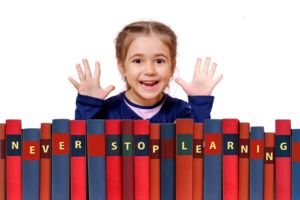The most important responsibility we have as adults is to help children to lead happy, resilient and successful futures. Wouldn’t it be great, therefore, if there were something simple we could do to accomplish this?
Stanford University Professor, Carol Dweck, has spent much of her career working on this very question. Through her research, she has discovered that successful people have what she calls a ‘Growth Mindset’. They believe that they can improve and develop their brain through hard work, by accepting challenges, and through effective teaching.
By contrast, those children who develop what she calls a ‘Fixed Mindset’, believe that you come into this world with a certain brain and that is that. According to Dweck, these children will spend much of their time secretly worrying about whether they were fortunate to have received a ‘good’ brain or not. They may not even want to try a question if they believe they could get it wrong, as this would give them evidence that they didn’t get the good brain.

For Dweck, a Growth Mindset brings tremendous advantage. With a “growth mindset, challenges are exciting rather than threatening” as they provide an opportunity to deepen one’s understanding. She does not imply with her work that everyone can become a Mozart or Einstein, but she does believe that a Growth Mindset will lead to much higher levels of success than what would be possible otherwise.
Determining which of these two mindsets a child may have is generally straightforward. A child with a Growth Mindset feels empowered. They will want to help another student or sibling, and will not be worried about making mistakes.
By contrast, a child with a Fixed Mindset, may be extremely upset even if they were to get only one question wrong in a quiz of a hundred questions. This may seem illogical to us, but this single error may signify to them that they did not get the ‘good’ brain. These children will, therefore, avoid such situations. They will prefer to remain in their comfort zone, and answer the same types of questions or performing the same tasks.
While there are certainly extremes in terms of mindsets, Dweck’s research suggests that those with a Growth Mindset will make must faster progress in school and beyond.
So how can we help children to develop such a Mindset? According to Dweck, it is by offering them the right forms of praise. In short, praise the effort, the strategy, or the time they put into the outcome, not the outcome itself.

Don’t just offer ‘good girl’ nor praise them for receiving the highest grade nor say how proud you are that they have been named the captain of a team. If you want to praise them for becoming captain, say for example, “Wow! Your coach must have noticed the effort you have put into improving your fitness levels this past year”, or “You have certainly worked hard during matches to organizing your team on the field.”
And should a child ever say, “I just can’t do it”, you should reply, “You may not be able to do it, yet!” The word ‘yet’ can be very powerful. You might add, “With a little more practice, and a little help, you will soon be able to do it”.
Besides praising effort or strategy, you can also select books, movies and songs to encourage children to think this way. Look for further ideas and information online.
We have a huge responsibility to help and guide young people. Provide them with the gift of a Growth Mindset and just watch as they thrive in school and go on to and live successful adult lives.
This article is written by Guest Writer: Roy White, Director of International School Eindhoven
Main picture: Sasint
















